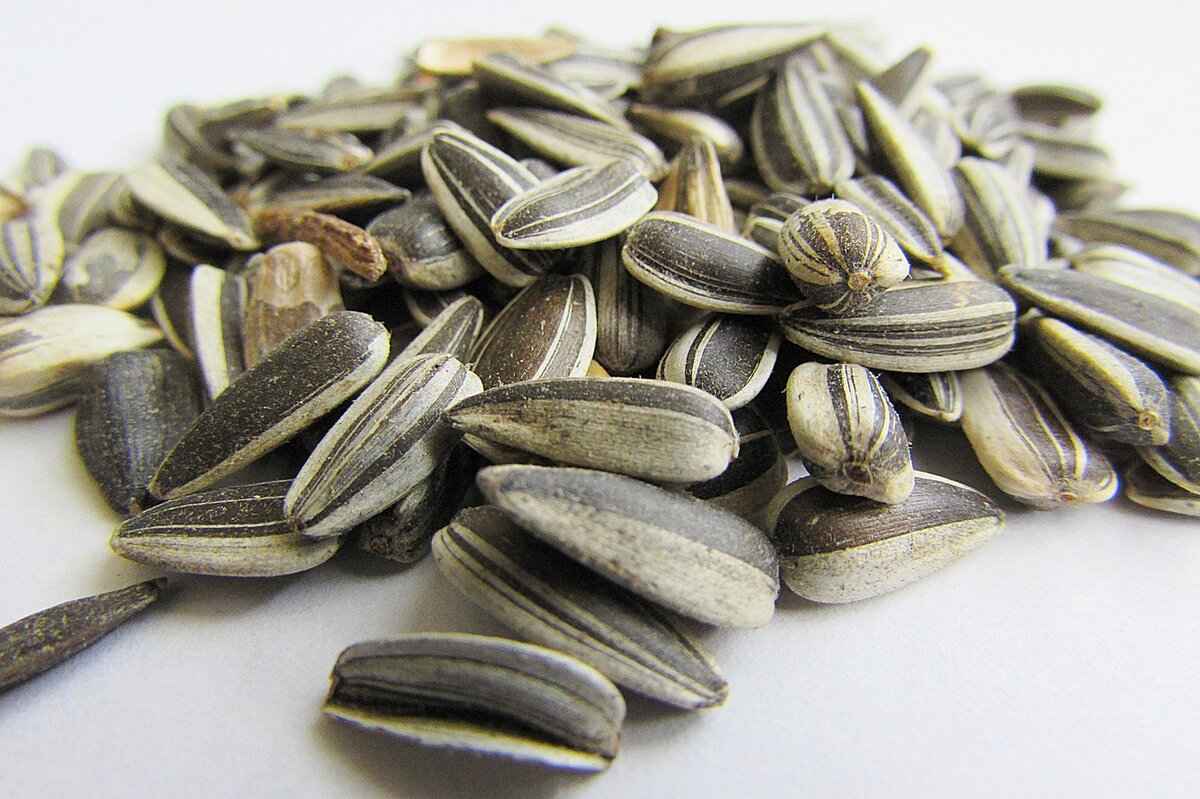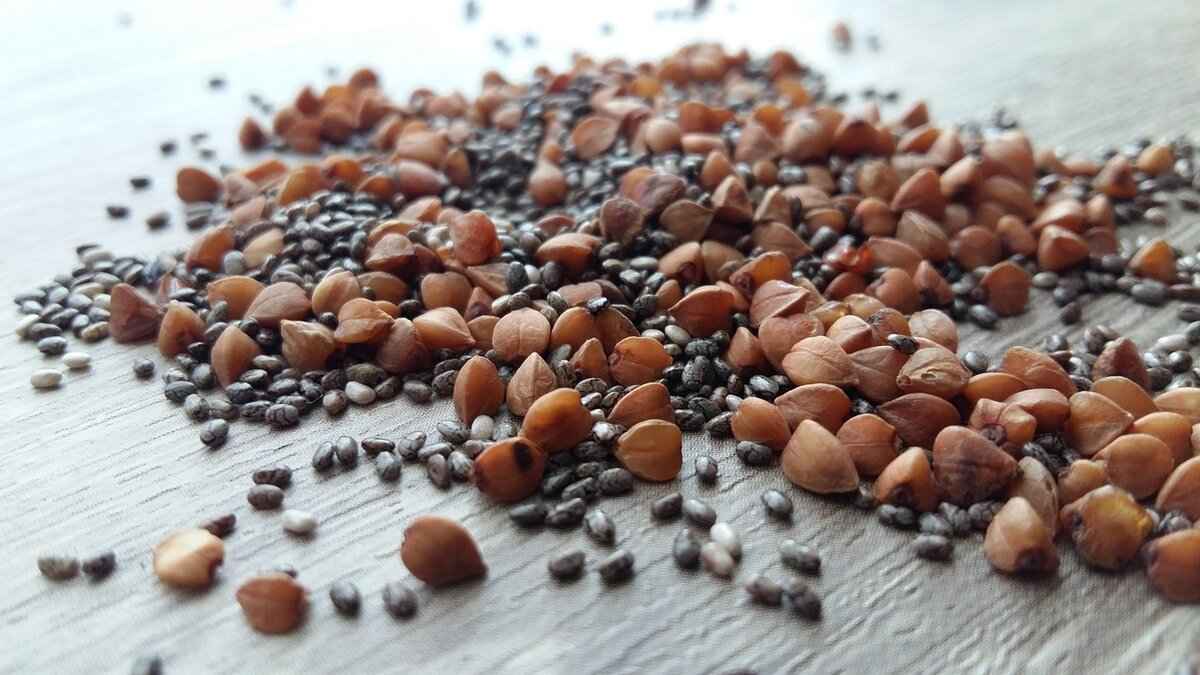This article delves into the benefits and drawbacks of consuming raw chia seeds, providing valuable insights into their nutritional profile, potential health risks, and practical tips for incorporating them into your diet.
What Are Chia Seeds?
Chia seeds are small, black or white seeds harvested from the Salvia hispanica plant, native to Mexico and Guatemala. Known for their impressive nutrient density, these seeds are rich in omega-3 fatty acids, fiber, protein, and essential minerals like calcium, magnesium, and iron. This powerful combination makes chia seeds a popular choice among health enthusiasts.
Are Raw Chia Seeds Safe to Eat?
Generally, raw chia seeds are safe for consumption. However, it is crucial to understand how to consume them effectively to maximize their health benefits while minimizing any potential digestive issues.
What Are the Nutritional Benefits of Chia Seeds?
Chia seeds boast a remarkable nutritional profile:
- High in Fiber: A 28-gram serving contains about 11 grams of fiber, aiding in digestive health.
- Rich in Antioxidants: These compounds help combat oxidative stress and inflammation.
- Source of Protein: Chia seeds provide a complete protein, containing all nine essential amino acids.
How Do Chia Seeds Contribute to Digestive Health?
The high fiber content in chia seeds promotes healthy digestion by supporting regular bowel movements and preventing constipation. This makes them a beneficial addition to a fiber-rich diet.
Can Chia Seeds Help with Weight Management?
Chia seeds can aid in weight management due to their ability to absorb water and expand in the stomach, resulting in a feeling of fullness. This natural appetite suppressant can help reduce overall caloric intake.
What Are the Potential Risks of Eating Raw Chia Seeds?
While generally safe, consuming raw chia seeds without proper hydration can lead to digestive discomfort. It is important to be aware of these risks and take necessary precautions when incorporating them into your diet.
Can Chia Seeds Cause Digestive Issues?
Eating raw chia seeds without soaking can lead to gastrointestinal issues, such as bloating or gas, due to their high fiber content. Soaking chia seeds in water or another liquid before consumption can help mitigate these effects.
Are There Allergic Reactions to Chia Seeds?
Though rare, some individuals may experience allergic reactions to chia seeds. It is essential to monitor for any adverse effects, especially if you are trying them for the first time.
How to Incorporate Raw Chia Seeds into Your Diet?
Incorporating raw chia seeds into your meals is easy and versatile. Here are some practical tips:
- Add them to smoothies for a nutrient boost.
- Sprinkle them on yogurt or oatmeal.
- Mix them into salads for added crunch.
What Are Some Popular Recipes with Raw Chia Seeds?
From chia seed puddings to energy bars, there are numerous recipes that showcase the versatility of raw chia seeds. These recipes allow you to enjoy their nutritional benefits in various forms.
How to Store Chia Seeds Properly?
Proper storage of chia seeds is crucial for maintaining their freshness and nutritional value. Store them in a cool, dry place in an airtight container to prolong their shelf life.

What Are Chia Seeds?
Chia seeds, derived from the Salvia hispanica plant, are tiny yet powerful seeds that have gained immense popularity in recent years. These seeds are not just a trendy addition to smoothies and salads; they are a nutrient powerhouse packed with essential fatty acids, fiber, protein, and a variety of vitamins and minerals. Their unique composition offers numerous health benefits, making them a favored choice among health enthusiasts and nutritionists alike.
Chia seeds are rich in omega-3 fatty acids, which are crucial for heart health. They also contain a significant amount of fiber, which aids in digestion and helps maintain a healthy weight. A single ounce of chia seeds provides:
- 11 grams of fiber
- 4 grams of protein
- 18% of the recommended daily intake of calcium
- 30% of the recommended daily intake of magnesium
- A rich source of antioxidants
This impressive nutritional profile supports various bodily functions and contributes to overall wellness.
Generally, raw chia seeds are safe for consumption. However, it is essential to consume them correctly to avoid potential digestive discomfort. When eaten dry, chia seeds can absorb water and expand, which may lead to issues if not properly hydrated. Therefore, it’s advisable to soak them before consumption, especially for those with sensitive digestive systems.
The high fiber content in chia seeds promotes healthy digestion. Fiber is known to be a key player in maintaining regular bowel movements and preventing constipation. By incorporating chia seeds into a fiber-rich diet, individuals can experience improved digestive health and overall well-being.
Chia seeds can be a valuable ally in weight management. When consumed, they absorb water and expand in the stomach, which helps create a feeling of fullness. This can lead to reduced overall caloric intake, making them an excellent addition to a weight-loss diet.
While chia seeds are generally safe, there are potential risks associated with consuming them raw. Eating them without adequate hydration can lead to digestive issues such as bloating or gas. It’s crucial to be aware of these risks and take measures to prepare them properly.
Yes, consuming raw chia seeds without soaking can lead to gastrointestinal discomfort. Their high fiber content can cause bloating or gas in some individuals. To mitigate these effects, soaking chia seeds in water or adding them to smoothies can help.
Although rare, some individuals may experience allergic reactions to chia seeds. Symptoms can range from mild digestive issues to more severe reactions. It’s important to monitor for any adverse effects, particularly when trying chia seeds for the first time.
Incorporating raw chia seeds into your meals is simple and versatile. They can be sprinkled on top of yogurt, blended into smoothies, or added to salads. Their neutral flavor makes them easy to mix into various dishes.
There are numerous delicious recipes that highlight the versatility of chia seeds. Some popular options include:
- Chia Seed Pudding: A simple mix of chia seeds, milk (or a milk alternative), and sweetener, left to thicken overnight.
- Energy Bars: Combining chia seeds with oats, nuts, and honey for a healthy snack.
- Smoothies: Adding chia seeds to your favorite smoothie for an extra nutritional boost.
To maintain the freshness and nutritional value of chia seeds, store them in a cool, dry place in an airtight container. Proper storage can extend their shelf life and ensure you reap the maximum health benefits.

Are Raw Chia Seeds Safe to Eat?
Chia seeds, derived from the Salvia hispanica plant, have gained immense popularity as a superfood due to their impressive nutritional profile. While many people incorporate these tiny seeds into their diets, a common question arises: The answer is generally affirmative, but understanding the nuances of their consumption is crucial for maximizing health benefits and minimizing any potential digestive issues.
Understanding Chia Seeds
Chia seeds are packed with essential nutrients, including omega-3 fatty acids, fiber, protein, and a variety of vitamins and minerals. These components contribute significantly to overall health, making chia seeds a valuable addition to a balanced diet.
Potential Health Benefits
- Rich in Nutrients: Chia seeds are a powerhouse of nutrients, offering high levels of antioxidants, calcium, magnesium, and iron.
- Digestive Health: The high fiber content aids in promoting regular bowel movements, thereby preventing constipation.
- Weight Management: Chia seeds can absorb water, expanding in the stomach and promoting a feeling of fullness, which may help reduce overall caloric intake.
Digestion and Raw Chia Seeds
While raw chia seeds are safe for most individuals, consuming them without proper hydration can lead to digestive discomfort. When dry, these seeds can absorb up to 12 times their weight in water, which can cause bloating or gas if they are consumed without sufficient liquid. To mitigate these effects, it is advisable to soak chia seeds in water or another liquid before consumption. This process not only enhances digestibility but also allows for better nutrient absorption.
Allergic Reactions
Although rare, some individuals may experience allergic reactions to chia seeds. Symptoms can include rash, itching, or gastrointestinal distress. If you are trying chia seeds for the first time, it is prudent to monitor your body’s response and consult a healthcare professional if any adverse effects occur.
Incorporating Raw Chia Seeds into Your Diet
Incorporating raw chia seeds into your meals can be both easy and versatile. Here are some practical tips:
- Add them to smoothies for an extra nutrient boost.
- Mix them into yogurt or oatmeal for added texture and nutrition.
- Sprinkle them on salads or soups for a delightful crunch.
Popular Recipes with Raw Chia Seeds
From chia seed puddings to energy bars, there are numerous recipes that highlight the versatility of raw chia seeds. These recipes not only showcase their nutritional benefits but also make them enjoyable to eat. For example, mixing chia seeds with almond milk and letting them sit overnight creates a delicious pudding that can be topped with fruits and nuts.
Storing Chia Seeds Properly
To maintain the freshness and nutritional value of chia seeds, proper storage is essential. Keep them in a cool, dry place, preferably in an airtight container. This method can significantly prolong their shelf life, ensuring that you always have a nutritious ingredient on hand.
In summary, raw chia seeds can be a safe and beneficial addition to your diet when consumed properly. By understanding their properties and incorporating them thoughtfully, you can enjoy their many health benefits while minimizing any potential risks.

What Are the Nutritional Benefits of Chia Seeds?
Chia seeds have gained immense popularity as a superfood, and for good reason. These tiny seeds are not only versatile but also packed with a wealth of nutrients that can significantly enhance your overall health. In this section, we will delve into the remarkable nutritional benefits of chia seeds and how they can contribute to a balanced diet.
Chia seeds offer an impressive nutritional profile that is hard to overlook. They are rich in essential nutrients that play crucial roles in maintaining optimal health. Below are some key components that make chia seeds a valuable addition to your diet:
- High in Antioxidants: Chia seeds are loaded with antioxidants, which help combat oxidative stress in the body. This can reduce the risk of chronic diseases and promote overall health.
- Rich in Omega-3 Fatty Acids: These seeds are an excellent source of alpha-linolenic acid (ALA), a type of omega-3 fatty acid that is vital for heart health and brain function.
- Excellent Source of Fiber: Chia seeds are incredibly high in fiber, which aids digestion and helps maintain a healthy weight by promoting a feeling of fullness.
- Packed with Minerals: Chia seeds contain significant amounts of calcium, magnesium, and iron, which are essential for bone health, muscle function, and oxygen transport in the body.
Incorporating chia seeds into your diet can yield numerous health benefits. Here’s how:
When included in a balanced diet, chia seeds can lead to various health improvements:
- Support Heart Health: The omega-3 fatty acids in chia seeds help lower blood pressure and cholesterol levels, contributing to cardiovascular health.
- Improve Digestive Health: The high fiber content promotes regular bowel movements and helps prevent constipation, making chia seeds a great addition to a digestive-friendly diet.
- Boost Bone Health: With their impressive mineral content, chia seeds can help maintain strong bones and reduce the risk of osteoporosis.
One of the standout benefits of chia seeds is their ability to assist in weight management. Due to their high fiber content, chia seeds absorb water and expand in the stomach, leading to a prolonged sensation of fullness. This can help reduce overall caloric intake and support weight loss efforts.
Adding chia seeds to your meals is both easy and versatile. Here are some practical tips:
- Add them to smoothies for a nutritious boost.
- Sprinkle them over salads or yogurt for added texture and nutrition.
- Use them in baking to enhance the nutritional profile of your favorite recipes.
In summary, chia seeds are a powerhouse of nutrients that can contribute significantly to your health when included in a balanced diet. Their impressive nutritional profile, combined with their versatility, makes them an excellent choice for anyone looking to enhance their overall wellness.
How Do Chia Seeds Contribute to Digestive Health?
Chia seeds have gained immense popularity as a superfood, and one of their standout features is their high fiber content. This nutrient plays a crucial role in promoting healthy digestion. In this section, we will explore how chia seeds contribute to digestive health and why they are a valuable addition to your diet.
Chia seeds are composed of approximately 34% fiber, which is significantly higher than many other seeds and grains. This fiber is primarily soluble, meaning it absorbs water and forms a gel-like substance in the digestive tract. This property is essential for maintaining regular bowel movements and preventing constipation.
The gel-like consistency that chia seeds develop when soaked in water helps to bulk up stool and facilitate its passage through the intestines. This natural laxative effect can be particularly beneficial for individuals who suffer from occasional constipation. By incorporating chia seeds into your diet, you can promote a more regular digestive rhythm.
Constipation can be uncomfortable and disruptive to daily life. The high fiber content in chia seeds not only helps to prevent constipation but also supports overall gut health. When consumed regularly, chia seeds can help maintain a healthy balance of gut bacteria, which is vital for optimal digestive function.
- Hydration: Chia seeds can absorb up to 12 times their weight in water, which aids in hydration and helps keep the digestive system functioning smoothly.
- Gut Health: The soluble fiber in chia seeds acts as a prebiotic, feeding the beneficial bacteria in your gut and enhancing overall digestive health.
- Weight Management: By promoting a feeling of fullness, chia seeds can help control appetite and reduce unhealthy snacking, which can indirectly support digestive health.
Adding chia seeds to your diet is simple and versatile. Here are some practical tips:
- Smoothies: Blend chia seeds into your morning smoothie for an easy fiber boost.
- Yogurt: Stir chia seeds into yogurt or oatmeal for added texture and nutrition.
- Salads: Sprinkle chia seeds on salads for a nutritious crunch.
While chia seeds are generally safe for most people, it’s important to consume them with adequate hydration. Eating dry chia seeds can lead to digestive discomfort, including bloating or gas. Therefore, it’s advisable to soak them in water or another liquid before consumption.
In conclusion, the high fiber content in chia seeds plays a significant role in promoting healthy digestion. By aiding in regular bowel movements and preventing constipation, chia seeds can be a valuable addition to a fiber-rich diet. Incorporating them into your meals can enhance your digestive health and overall well-being.
Can Chia Seeds Help with Weight Management?
Chia seeds have gained significant attention in the health and wellness community, particularly for their potential role in weight management. These tiny seeds, derived from the Salvia hispanica plant, are not only nutrient-dense but also possess unique properties that can aid in controlling appetite and promoting a healthy weight.
One of the most remarkable features of chia seeds is their ability to absorb water. When soaked, they can expand up to 12 times their original size, forming a gel-like substance. This property can be particularly beneficial for those looking to manage their weight. By consuming chia seeds, individuals may experience an increased feeling of fullness, which can lead to reduced overall caloric intake.
Chia seeds are an excellent source of dietary fiber, containing approximately 10 grams of fiber per ounce. This high fiber content contributes to weight management in several ways:
- Satiety: Fiber slows down the digestion process, prolonging the sensation of fullness after a meal.
- Blood Sugar Regulation: Fiber helps stabilize blood sugar levels, preventing spikes that can lead to cravings and overeating.
- Digestive Health: A healthy digestive system is crucial for weight management, and fiber promotes regular bowel movements.
Incorporating chia seeds into your daily routine can be simple and enjoyable. Here are some practical tips:
- Add to Smoothies: Blend chia seeds into your favorite smoothie for an extra nutrient boost.
- Mix into Yogurt: Stir chia seeds into yogurt or oatmeal for added texture and health benefits.
- Bake with Them: Include chia seeds in baked goods like muffins or bread for a nutritious enhancement.
While chia seeds offer numerous benefits, it’s essential to consume them properly. Here are a few considerations:
- Hydration: Always ensure you drink enough water when consuming chia seeds, especially if eating them raw. Their ability to absorb water means they can expand in your stomach, potentially leading to discomfort if not properly hydrated.
- Moderation: Although they are healthy, chia seeds are also calorie-dense. Moderation is key to avoiding excess caloric intake.
Nutritionists and health experts often highlight the role of chia seeds in a balanced diet. They emphasize that while chia seeds can aid in weight management, they should not be viewed as a magic solution. Instead, they work best when combined with a healthy diet and regular physical activity. Incorporating chia seeds into a diet rich in fruits, vegetables, lean proteins, and whole grains can enhance their effectiveness.
In summary, chia seeds can be a valuable addition to your weight management strategy. Their unique ability to absorb water, combined with their high fiber content, can promote satiety and help regulate appetite. By incorporating them into your meals thoughtfully and maintaining a balanced diet, you can harness the benefits of chia seeds to support your health and wellness goals.

What Are the Potential Risks of Eating Raw Chia Seeds?
Chia seeds have gained popularity as a superfood due to their numerous health benefits. However, it’s crucial to understand the potential risks associated with consuming them raw. This article delves into the possible digestive issues and other concerns that may arise when incorporating raw chia seeds into your diet.
While chia seeds are generally safe for most people, there are specific risks associated with consuming them in their raw form. Understanding these risks can help you make informed dietary choices.
Digestive discomfort is one of the primary concerns when consuming raw chia seeds. These tiny seeds are packed with fiber, which is beneficial for your digestive health. However, if consumed without adequate hydration, they can absorb water in your digestive system, potentially leading to issues such as:
- Bloating: The expansion of chia seeds in the stomach can create a feeling of fullness, but this can also lead to bloating if the seeds are not properly hydrated.
- Gas: The fermentation of undigested fiber in the gut can result in gas production, causing discomfort.
- Constipation: Inadequate water intake combined with high fiber can lead to constipation, counteracting the seeds’ intended benefits.
To mitigate these risks, it is advisable to soak chia seeds in water or another liquid before consumption. This allows them to expand and absorb moisture, making them easier to digest.
Although rare, some individuals may experience allergic reactions to chia seeds. Symptoms can range from mild to severe and may include:
- Itching: Skin rashes or itching may occur in sensitive individuals.
- Swelling: Swelling of the face, lips, or throat can signify a more serious allergic response.
- Gastrointestinal Issues: Some may experience nausea or vomiting after consuming chia seeds.
If you are trying chia seeds for the first time, it’s wise to start with a small amount and monitor your body’s response.
Chia seeds can also interact with certain medications, particularly those that affect blood sugar levels or blood pressure. The seeds’ ability to lower blood sugar and blood pressure can enhance the effects of these medications, potentially leading to:
- Hypoglycemia: Excessively low blood sugar levels can occur if chia seeds are consumed alongside diabetes medications.
- Low Blood Pressure: Those on antihypertensive drugs should be cautious, as chia seeds may further lower blood pressure.
Consulting with a healthcare provider before adding chia seeds to your diet is advisable, especially if you are on medication.
To enjoy the benefits of chia seeds while minimizing risks, consider the following tips:
- Soak Before Eating: Always soak chia seeds in water or another liquid for at least 30 minutes before consumption to ensure they are adequately hydrated.
- Start Small: Begin with a small serving size to assess your body’s reaction and gradually increase as tolerated.
- Stay Hydrated: Drink plenty of water throughout the day, especially when consuming high-fiber foods like chia seeds.
By taking these precautions, you can safely enjoy the nutritional benefits of chia seeds while minimizing potential health risks.
Can Chia Seeds Cause Digestive Issues?
Chia seeds have gained immense popularity as a superfood due to their rich nutritional profile. However, many people wonder about the potential digestive issues associated with consuming them, especially when eaten raw and unsoaked. In this section, we will explore the question:
Chia seeds are an excellent source of dietary fiber, which is essential for maintaining a healthy digestive system. While fiber is beneficial, consuming it in excessive amounts without adequate hydration can lead to discomfort. This is particularly true for chia seeds, which can absorb up to 12 times their weight in water.
When you consume raw chia seeds without soaking them, they can expand in your stomach, potentially leading to gastrointestinal issues such as:
- Bloating: The rapid expansion of chia seeds can create a feeling of fullness and pressure in the abdomen.
- Gas: The fermentation of undigested fiber in the gut can lead to gas production.
- Constipation: Insufficient water intake combined with high fiber intake may result in constipation.
To enjoy the health benefits of chia seeds while minimizing the risk of digestive issues, consider the following tips:
- Soak the Seeds: Soaking chia seeds in water or another liquid for at least 30 minutes allows them to hydrate and expand outside the body, making them easier to digest.
- Gradual Introduction: If you are new to chia seeds, start with small amounts and gradually increase your intake to allow your digestive system to adjust.
- Stay Hydrated: Drink plenty of water throughout the day to help the fiber move through your digestive system smoothly.
While rare, some individuals may experience allergic reactions to chia seeds. Symptoms can include itching, hives, or gastrointestinal distress. If you experience any adverse effects, it is advisable to consult a healthcare professional.
In summary, while chia seeds are a nutritious addition to your diet, consuming them raw without proper preparation can lead to digestive issues. By soaking them, staying hydrated, and introducing them gradually into your meals, you can enjoy their numerous health benefits without discomfort. Always listen to your body and consult with a healthcare provider if you have any concerns regarding your digestive health.
Are There Allergic Reactions to Chia Seeds?
Chia seeds are widely celebrated for their numerous health benefits, but like any food, they can pose risks for certain individuals. While allergic reactions to chia seeds are considered rare, it is essential to be aware of the possibility, particularly for those trying them for the first time.
Allergic reactions can vary significantly from person to person, and symptoms may include:
- Skin Reactions: Rashes, hives, or itching may occur in some individuals.
- Gastrointestinal Issues: Symptoms such as nausea, vomiting, or diarrhea could be signs of an allergy.
- Respiratory Problems: Difficulty breathing, wheezing, or nasal congestion might indicate a more severe allergic response.
It is crucial to note that chia seeds belong to the same family as mint and sage, which can be problematic for those with existing allergies to these herbs. If you have a history of allergies, particularly to seeds or nuts, it may be wise to approach chia seeds with caution.
When consuming chia seeds for the first time, consider the following tips to minimize the risk of an allergic reaction:
- Start Small: Begin with a small amount, such as one teaspoon, to see how your body reacts.
- Monitor Symptoms: Keep an eye out for any adverse reactions, especially within the first few hours of consumption.
- Consult a Healthcare Provider: If you have concerns about allergies, speak with a healthcare professional before adding chia seeds to your diet.
In addition to allergic reactions, some individuals may experience food intolerances to chia seeds, which can lead to digestive discomfort. Symptoms may include bloating, gas, or cramping, particularly if the seeds are consumed in large quantities or without adequate hydration. The high fiber content in chia seeds can also contribute to these issues, emphasizing the importance of proper preparation.
To mitigate potential digestive issues, it’s advisable to soak chia seeds before consumption. Soaking allows the seeds to absorb water and expand, making them easier to digest and reducing the likelihood of gastrointestinal discomfort. This preparation method also enhances their nutritional benefits, making them a more palatable addition to various dishes.
In summary, while allergic reactions to chia seeds are uncommon, they can occur, particularly in individuals with existing allergies to similar plants. By taking precautions, starting with small amounts, and monitoring for any adverse effects, you can safely incorporate chia seeds into your diet. Always consult with a healthcare professional if you have concerns about allergies or intolerances.

How to Incorporate Raw Chia Seeds into Your Diet?
Incorporating raw chia seeds into your meals can be both easy and versatile. These tiny seeds can enhance the nutritional profile of various dishes without requiring extensive preparation. One of the most appealing aspects of chia seeds is that they can be added directly to your meals, making them a convenient option for busy lifestyles.
There are numerous ways to integrate chia seeds into your diet, allowing you to enjoy their health benefits effortlessly.
- Smoothies: Blend a tablespoon of raw chia seeds into your favorite smoothie for an added boost of fiber and omega-3 fatty acids. They will not alter the flavor significantly but will enhance the texture.
- Yogurt: Sprinkle chia seeds over yogurt for a nutritious topping. This combination adds a satisfying crunch and increases the protein content, making it a perfect breakfast or snack option.
- Salads: Toss chia seeds into salads for added texture and nutrition. They can absorb moisture and add a slight crunch, making your salads more filling.
- Baking: Incorporate chia seeds into your baked goods, such as muffins or bread. They can replace eggs in vegan recipes when mixed with water, creating a gel-like consistency.
- Oatmeal: Add chia seeds to your morning oatmeal or porridge. They will swell and create a creamy texture while providing essential nutrients.
There are many delicious recipes that highlight the versatility of chia seeds:
- Chia Seed Pudding: Combine chia seeds with almond milk and a sweetener of your choice. Let it sit overnight, and in the morning, you’ll have a nutritious pudding that can be topped with fruits and nuts.
- Energy Bars: Mix chia seeds with oats, nut butter, and honey to create homemade energy bars. These are perfect for a quick snack on the go.
- Chia Fresca: Mix chia seeds with water, lemon juice, and a sweetener to create a refreshing drink. This is a popular beverage in many cultures and is a great way to hydrate.
To maintain the freshness and nutritional value of chia seeds, proper storage is essential:
- Store chia seeds in an airtight container to protect them from moisture and air.
- Keep them in a cool, dry place, away from direct sunlight, to prolong their shelf life.
- Consider refrigerating them if you buy in bulk, as this can help maintain their quality for a longer period.
By incorporating raw chia seeds into your meals, you can easily enhance your diet with minimal effort. Their nutritional benefits and versatility make them a valuable addition to a healthy eating plan. Whether you prefer them in smoothies, salads, or baked goods, chia seeds can be a delightful way to boost your overall health.
What Are Some Popular Recipes with Raw Chia Seeds?
Chia seeds have gained immense popularity in recent years due to their impressive nutritional profile and versatility in culinary applications. From breakfast to snacks, there are numerous ways to incorporate these tiny seeds into your diet. Below are some popular recipes that highlight the versatility of raw chia seeds, allowing you to enjoy their nutritional benefits in various forms.
Chia seed pudding is a simple yet delicious way to enjoy chia seeds. To make this dish, combine 1/4 cup of chia seeds with 1 cup of almond milk (or any milk of your choice) in a bowl. Stir well and let it sit for about 15 minutes to allow the seeds to absorb the liquid and expand. Add your favorite sweetener, such as honey or maple syrup, and top with fresh fruits, nuts, or granola for added flavor and texture.
Making your own energy bars with chia seeds is a fantastic way to create a healthy snack. Combine 1 cup of oats, 1/4 cup of chia seeds, 1/2 cup of nut butter, and 1/4 cup of honey in a mixing bowl. Mix until well combined, then press the mixture into a lined baking dish. Refrigerate for at least 2 hours before cutting into bars. These energy bars are perfect for on-the-go snacking!
For a quick and nutritious breakfast, consider adding chia seeds to your smoothies. Blend together 1 banana, 1/2 cup of spinach, 1 tablespoon of chia seeds, and 1 cup of your favorite milk. This smoothie not only provides a good dose of vitamins and minerals but also keeps you full for longer due to the fiber content of chia seeds.
Make a healthier alternative to traditional jam by using chia seeds. Combine 2 cups of fresh or frozen fruit with 2 tablespoons of chia seeds and 1-2 tablespoons of honey in a saucepan. Cook over medium heat until the fruit breaks down, then let it cool. The chia seeds will thicken the mixture, creating a delicious jam that can be spread on toast or used as a topping for desserts.
Add a sprinkle of raw chia seeds to your salads for an extra crunch and nutritional boost. Simply toss 1-2 tablespoons of chia seeds over your favorite salad ingredients. They not only enhance the texture but also provide additional fiber and omega-3 fatty acids.
For a unique twist on classic pancakes, incorporate chia seeds into the batter. Mix together 1 cup of flour, 1 tablespoon of baking powder, 2 tablespoons of chia seeds, 1 cup of milk, and 1 egg. Cook on a skillet until golden brown. These pancakes are not only delicious but also come packed with nutrients!
Incorporating raw chia seeds into your diet can be both fun and beneficial. With these recipes, you can enjoy the nutritional benefits of chia seeds while exploring various flavors and textures. Whether you choose to make a refreshing pudding or a hearty energy bar, chia seeds can enhance your meals in multiple ways.
How to Store Chia Seeds Properly?
Storing chia seeds properly is essential for preserving their freshness and nutritional value. These tiny seeds are packed with essential nutrients, but improper storage can lead to spoilage and loss of their beneficial properties. In this section, we will explore the best practices for storing chia seeds to ensure they remain safe and nutritious for your consumption.
Chia seeds have a long shelf life, but they are sensitive to moisture, heat, and light. When exposed to these elements, chia seeds can become rancid, losing their flavor and health benefits. Proper storage techniques can help maintain their quality and extend their usability.
- Cool, Dry Place: Store chia seeds in a cool, dry location, away from direct sunlight. A pantry or cupboard is ideal.
- Airtight Container: Use an airtight container to prevent moisture from entering. Glass jars or plastic containers with tight seals work well.
- Refrigeration: For long-term storage, consider keeping chia seeds in the refrigerator. This helps maintain their freshness and prevents rancidity.
- Freezing: If you buy chia seeds in bulk, freezing them can be an excellent option. Just ensure they’re in a sealed bag or container to avoid freezer burn.
When stored properly, chia seeds can last for up to two years. However, it’s advisable to check for any changes in smell or appearance before consuming them, as these can indicate spoilage.
Improper storage can lead to several issues:
- Loss of Nutritional Value: Exposure to air and light can degrade vital nutrients, including omega-3 fatty acids.
- Rancidity: Chia seeds can develop a rancid smell and taste, making them unpalatable.
- Contamination: If left uncovered, chia seeds may absorb moisture and attract pests, leading to contamination.
To ensure your chia seeds remain fresh, consider the following tips:
- Check Expiration Dates: Always pay attention to the expiration date on the package when purchasing.
- Smell Test: If the seeds have an off or rancid smell, it’s best to discard them.
- Visual Inspection: Look for any signs of mold or discoloration, which can indicate spoilage.
By following these storage guidelines, you can enjoy the numerous health benefits of chia seeds while ensuring they remain fresh and nutritious. Remember, proper storage not only prolongs the shelf life of chia seeds but also enhances your overall health and wellness.
Frequently Asked Questions
- Can I eat chia seeds raw?
Absolutely! Raw chia seeds are generally safe to eat. Just remember to consume them properly to maximize their health benefits and avoid any digestive discomfort.
- What are the health benefits of raw chia seeds?
Chia seeds are packed with nutrients like omega-3 fatty acids, fiber, and antioxidants. They can help improve digestion, support weight management, and provide essential minerals for overall wellness.
- Do I need to soak chia seeds before eating them?
While soaking is not mandatory, it’s highly recommended. Soaking chia seeds allows them to absorb water, which can help prevent digestive issues like bloating and gas.
- Can chia seeds cause any side effects?
In some cases, eating raw chia seeds without proper hydration can lead to gastrointestinal discomfort. Always ensure you’re drinking enough water when consuming them.
- How should I store chia seeds?
Store chia seeds in a cool, dry place in an airtight container to maintain their freshness and nutritional value. This will help prolong their shelf life.














